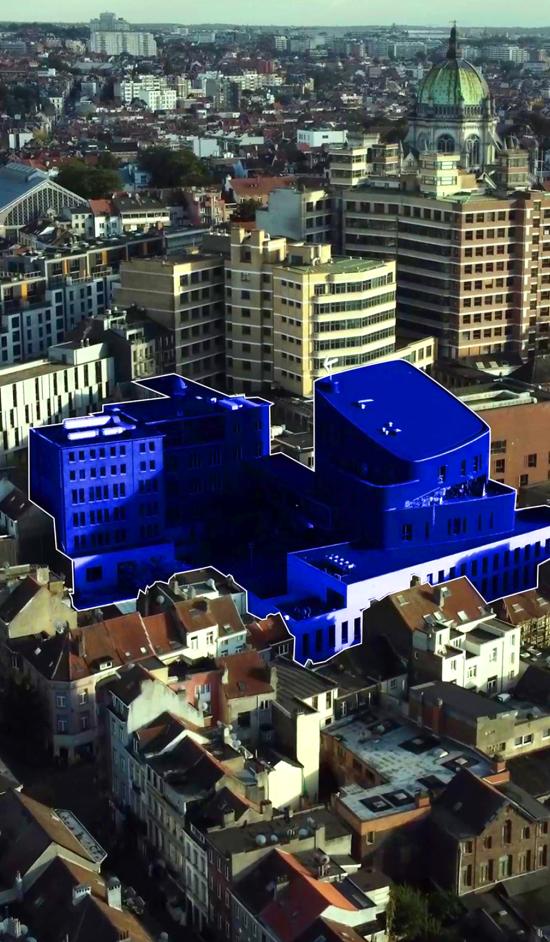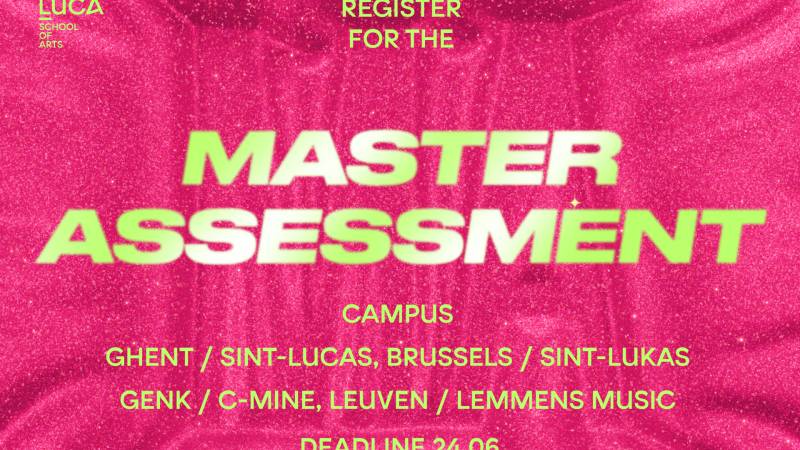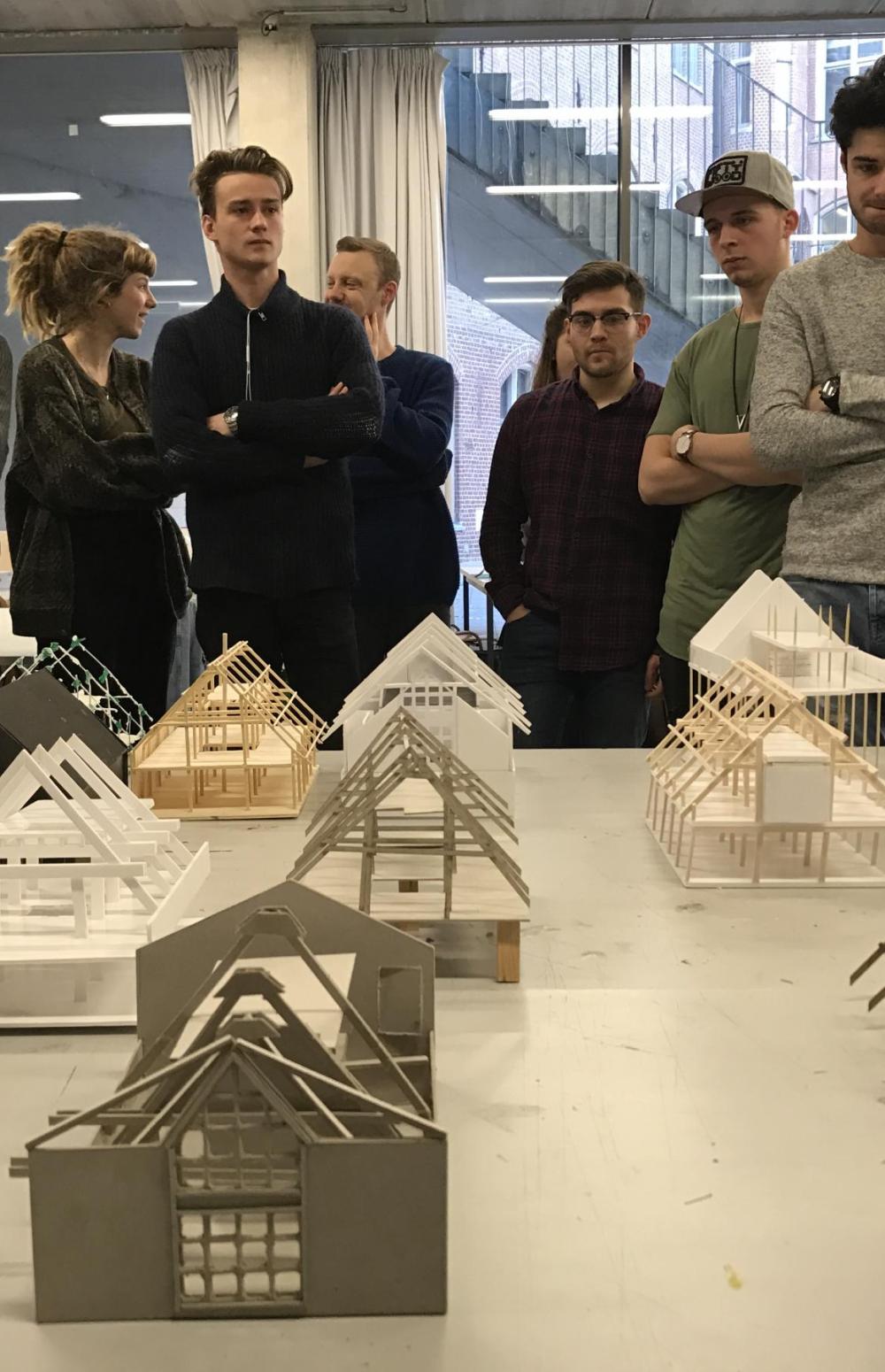
Campus Brussel / Sint-Lukas
Interior Design Exchange
When choosing Interior Design, taught at our campus Sint-Lukas Brussels and our campus Sint-Lucas Ghent, you'll be challenged to immerse yourself in spatial design as a whole.

Interior Design is a 3-year professionally oriented spatial design course. A thorough technical and cultural training goes hand in hand with a significant amount of practice based learning. The programme concentrates on interior design, installations, scenography, furniture design and object design. Students are encouraged to develop their talents and interests and to thus find their place in the professional field of interior design. LUCA offers this programme in Ghent and Brussels. The course programme on both campuses is identical. Students from both campuses jointly take part in workshops and excursions.
By hands-on learning you'll discover which design methods and fields of activity suit you best. The singularity and identity of each student form the basis for becoming a (self)critical and authentic designer.
Programme for exchange students: Exchange students are welcome to join the programme in 3BA (first semester).
After taking part in an interactive introduction week, students start the semester with the LUCA work placement programme (LUCA-Upstairs) which will run during the first few weeks. Luca-Upstairs is an internal professional agency in the center of Brussels. You'll focus on social and cultural (real-life) projects where you go in depth into these projects by exploring good practices, among other things. One example could be learning how to design for a vulnerable group of people or how to design a well-being space for various social groups.
Working together (in team) with real clients, partners and target groups is a challenge and an excellent learning process for your development, in which social service and sustainability are central!
After this intensive start, you continue your programme at the campus of your choice. Among other things, you’ll learn to develop a prototype based on an idea you designed earlier (furniture/ scenography/ object), you’ll learn to analyse and investigate a given context and actively participate in cultural visits (lectures, biennials, exhibitions, dance and music performances, guided tours or interior visits).
First semester
| Component code | Course name | ECTS credits |
|---|---|---|
| K44228 | English Cultural Module Brussels "Made in Belgium" | 3 |
| K44312 | Designstudio Realization | 6 |
| K44311 | Designstudio Research | 5 |
| K43929 | Cultural Participation | 4 |
| K44313 | LUCA Upstairs Internship Office | 10 |
| K44594 | Interior Design Project | 5 |
| Total | 30 |
Note: To see full description of the courses, click here. Keep in mind, this page is not definitive, changes might still occur.
A good command of English (level B2) is required to make the most of your stay with us.
Interested in this course?
All Erasmus+ Exchange Students need to apply via the exchange application procedure of LUCA School of Arts. During your application process, you can indicate the LUCA campus of your choice and the exchange programme you wish to apply for. Notice that not all programmes are open for incoming exchange students in both semesters. An overview can be found here.
- The deadline for the Autumn Semester / full year is April 1
- The deadline for the Spring Semester is October 1
Outcome Exchange Application
The outcome of the application can be expected within 4-6 weeks after the application deadline. Both you and your international coordinator will be informed about the result of your application by e-mail. No need to inquire about the outcome yourself.
Where do you have class?
Facilities & campus life
Campus Sint-Lukas Brussels
Paleizenstraat 70
1030 Brussels
+32 2 250 11 00
An international campus and an added value to your programme
- A modern and open campus in one of Europe's foremost artistic hubs
- Studio's and workshops, a state of the arts lending service, high tech print rooms …
- A creative community with four educational institutions and over a thousand artist and designers
- An art library renowned for its collection in the country
- At walking distance of the Brussels North railway station
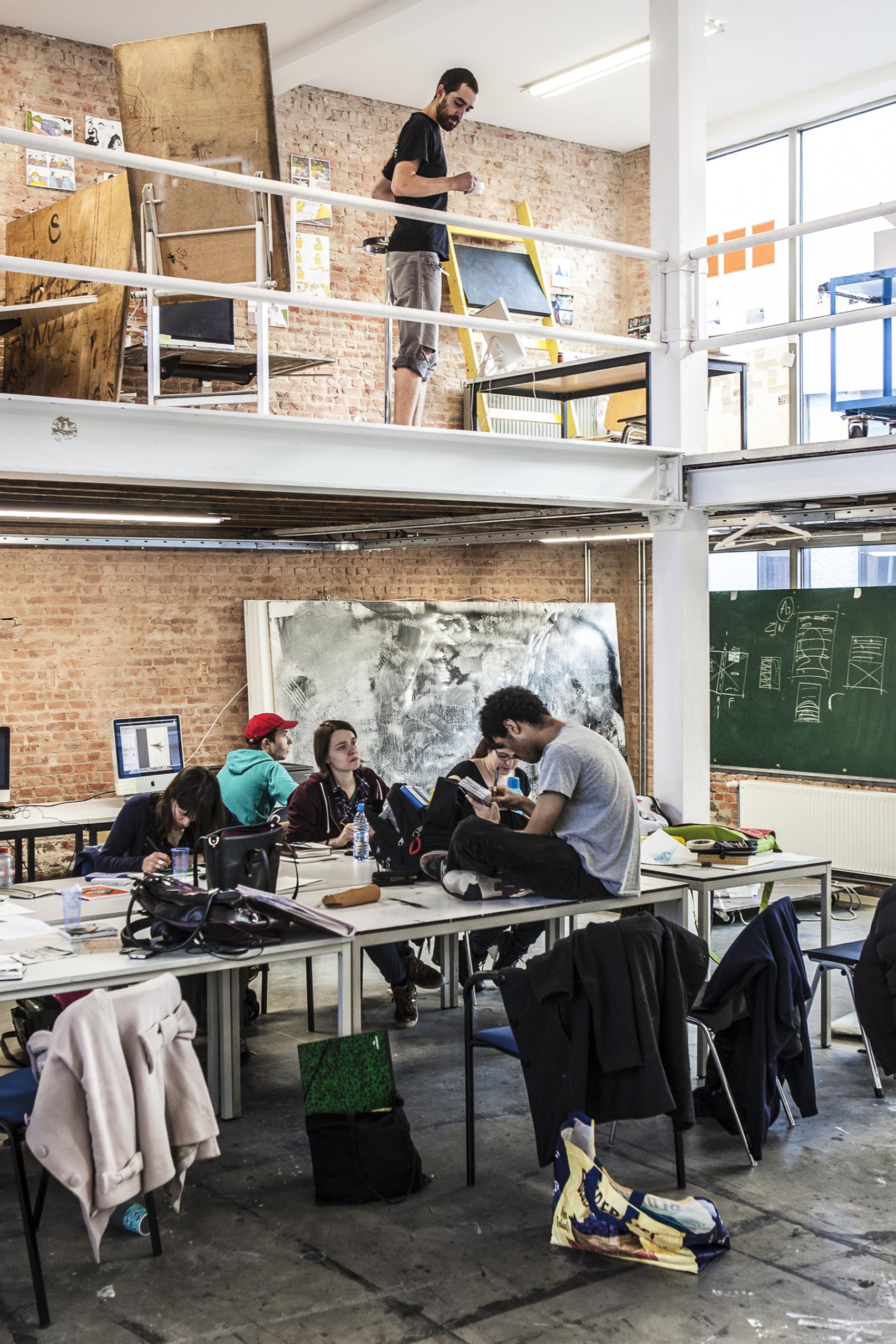
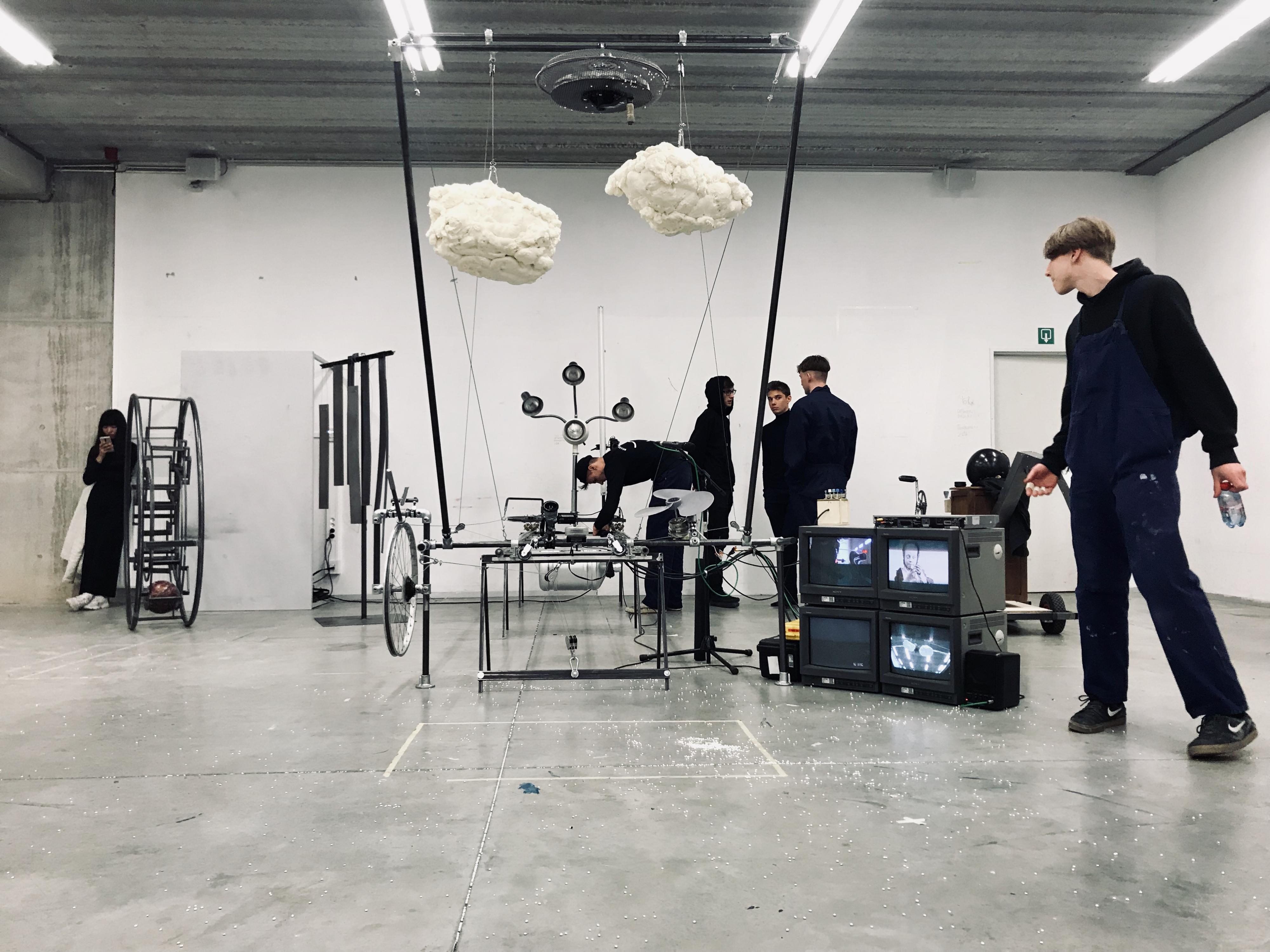
Contact
If you need more information, don't hesitate to contact us:
- Bettie Smets, International Coordinator campus Sint-Lukas Brussels and Narafi Brussels
- bettie.smets@luca-arts.be
- Tel: +32 2 308 27 62
Campus Sint-Lucas Ghent:
- Veerle Van den Abbeele
- Veerle.vandenabbeele@luca-arts.be
- Tel. +32 2 447 10 76
- Machteld Pectoor
- Machteld.pectoor@luca-arts.be
- Tel. +32 9 447 10 75
At LUCA we attach great importance to the quality of our courses
If the basic principle of the policy plan means that 'quality is our driving force', and that every aspect of the policy can be tested against this, then LUCA undeniably wants to develop and nurture a strong quality culture: a culture that leaves based on trust in people with talent and expertise, and which is aimed at valuing, inspiring and improving.
The formal quality framework for training within LUCA was named KOPERA, which stands for: Critically Analyzing the Quality of Training with Peers in Own Direction.
For KOPERA, LUCA starts from a vision of quality care that is based on trust and aimed at valuing, inspiring and improving.
During the six-year KOPERA cycle, each training course receives a panel of critical friends who examine the implementation of the quality characteristics and examine how the training contributes to the general LUCA policy.
The final element of KOPERA is the ultimate assurance of training quality. The key question is: "Does the program have a good quality culture that follows the 'plan-do-check-act' circle?"
LUCA publishes a quality sheet for each course. You can find this on the Education Quality page.
Visit us
Are you curious about our approach to art education? During our open days, you will get all the information you need, visit the campus, talk to our teaching staff and students ... Still not convinced? Visit our graduation show! During this, on-campus two-day art festival you can experience first hand how good our students really are.
